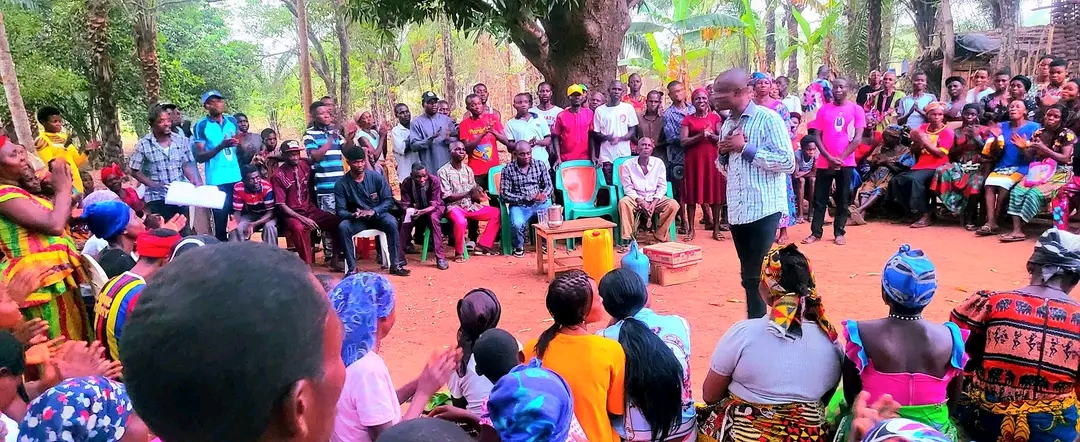This article centres on the reason Nigerian politicians go broke immediately after leaving office. The article seeks to reveal the reasons and possible solutions to same.
1. They had nothing doing before joining politics: One of the reasons or causes of the early brokenness of politicians in Nigeria is their inability to have something doing from where they generate personal income before their foray into politics and then public offices. The money that comes from public office is like mirage. The more close you get to it, the more blank it appears. Anyone who has nothing else doing other than spending what he generates from public office is akin to a poor person as they could lose office anytime.
2. No investment: Most career politicians in Nigeria don’t invest in businesses through which they can have second economic address. They think they generate enough and sustainable income from the positions they occupy. They are convinced that the money currently disposed to their reach is large enough to keep them going economically not knowing that stagnant water dries off more easily than flowing one.
3. Lack of investment in human beings: Most career politicians in Nigeria do not empower their followers to stand out economically. A few who do offer such persons meagre capitals. As soon as they leave office, they have nobody to fall on when they bush grows grey. In time of sponsorship need, they lack persons to assist them. This is so because, they failed to invest in their people, at least a handful of them to stand firm on the sand of economic success in few years to come. They only invest in their children many of whom later spend their money and value in vices and wrong peer groups. It’s a rare scenario to find children of politicians doing greatly well in the society. If they exist, then they’re few in present society. Our politicians should learn to raise people who can come to their rescue when the chips are down with them in the future. No altruistic investment in people is a waste. Last week in Ebonyi State, visuals of the House of Representatives member representing Ikwo/Ezza South Federal Constituency, Hon. Chinedu Ogah, OON sharing tobacco leaves to constituents who weren’t tobacco traders trended on social media. He was quoted as saying that he wanted to offer rural constituents what could keep them warmth in the rainy season. This is ridiculous. It’s evident that such a character will perish economically in the nearest future if he fails to pick himself up from the dustbin administrative recalcitrance and carelessness. If he could call such constituency benefit, then he is on a very long walk towards self ruination.
4. Lack of sustainable connection: Most politicians in Nigeria tie themselves up to their immediate environments and members of their folkship. They don’t extend their arms to different peoples and social environments. The ability to connect to different peoples and societies is a prelude to economic and social sustenance. But it’s unfortunate that most politicians here are not willing to stress themselves in this regard.
5. Scam: Some of the politicians who try to invest fall into wrong hands. They fail to consult properly before investing their resources into businesses. This results them in losing millions of naira in the hands of scammers. Many have fallen victim to this. It mostly happens in Abuja. Contract and investment racketeers are replete in capital city. They appear by all standards genuine and experienced until they manifest their other aspect. Politicians should not be in a hurry to hand over their resources to scandalous means and people. They should discard the idea of gaining millions with thousands within a very tiny period of time. It’s this mentality that catapults them into the hemisphere of scam and losses.
6. Promiscuity: Most politicians in Nigeria are promiscuous, the men mainly. They are sometimes hypnotised by these female folks in the business of promiscuity. The implication is that they turn in at clean sweep and with the speed of light greater chunk of their resources to their mistresses who would later disappoint them when the chips are down. This scenario is emblematic of most male politicians in Nigeria. Once they are given political appointments, the thought of having a retinue of women around them begins to take a great toll in their lives. They lose millions in the hands of these women who are mostly young girls. They take advantage of the indiscipline in the consciousness of the male folks in politics.
7. Overbloated ego: Most politicians wish to be in topnotch offices from time to time. They don’t want to find themselves outside the realm of power. To achieve this, they commit a lot of resources into its pursuit. Often, they lose all they have saved alongside the offices paid to gain. A person who should be vying for a seat at the House of Assembly now chooses to rather contest for governorship position. This drains them of their money and energy and leaves them wallowing in the ocean of economic insolvency. Politicians should at all times evaluate themselves and know where they are qualified to be at any given point in time.
8. Naivety: Some politicians aren’t updated with current trends. They dwell in their decrepit knowledge. They roam in the past ways of doing things. Many politicians are around this particular table. This makes them lose opportunities of economic and political uplift.
9. Economic vulgarity: Many a politicians are fond of spending money carelessly. They spend for the sake of so doing. They are always delinquent in spending. They think that the ocean is too full to dry soon. They lavish resources on things that are vainglorious.
10. Lack of good advice: Most Nigerian politicians glory in vainglorious praises. They see critics and good counsel as travesty. They give a distance to those who mean well for them and then bring closer those who are telling them what they want to hear which is often in negative taste.
In conclusion, politicians in Nigeria should observe restraint in the way they spend money and time. It doesn’t take anything to go insolvent in Nigeria.


